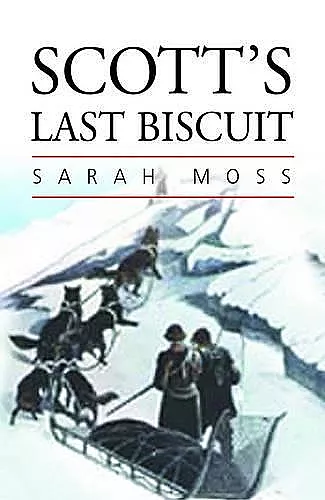Scott's Last Biscuit
The Literature of Polar Exploration
Format:Paperback
Publisher:Andrews UK Limited
Published:11th Jan '06
Currently unavailable, our supplier has not provided us a restock date

Exploring polar exploration and its literature, Scott's Last Biscuit highlights iconic journeys and the human spirit's resilience in extreme conditions.
The book Scott's Last Biscuit offers a comprehensive exploration of polar exploration and the literature it has inspired over the centuries. It delves into the rich tapestry of Arctic and Antarctic travel writing, which has captivated readers for over three hundred years. Central themes such as endurance, danger, and self-sacrifice are highlighted, showcasing the human spirit's relentless curiosity and the perilous allure of these remote landscapes. Iconic figures like Ernest Shackleton, Captain Oates, and Roald Amundsen emerge as symbols of this adventurous spirit, their stories serving as both inspiration and cautionary tales.
In Scott's Last Biscuit, Sarah Moss examines the evolution of polar literature, tracing influential accounts from the 14th century to the present. The narrative spans a wide range of experiences, including the haunting disappearance of Greenland's Viking inhabitants and Captain Robert Falcon Scott's poignant final writings. Moss provides insightful literary analyses of works by explorers and lesser-known figures, highlighting the diverse voices that have contributed to this genre. The book's thematic structure allows readers to engage with the darker aspects of exploration, such as the tragic outcomes of ill-fated expeditions and the thrill of narrow escapes.
Moreover, the book sheds light on the often-overlooked contributions of women in polar history. Moss discusses the compelling narratives of figures like Jenny Darlington and Letitia Hargraves, as well as Isobel Hutchison's botanical journeys. Through these stories, Scott's Last Biscuit enriches our understanding of polar exploration and its enduring impact on literature and culture.
ISBN: 9781902669878
Dimensions: unknown
Weight: 290g
256 pages